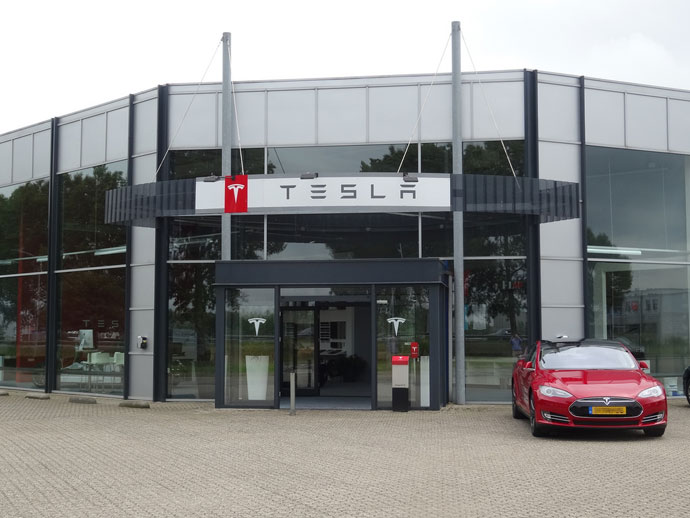Why Hasn’t Detroit Killed Tesla?

Image via Flickr/ harry_nl
Tesla Motors is still around, and it is thriving. But whatever happened to all of the pressure Detroit was putting on the government to kill the company? From banned auto sales to coverage of car crashes, a failure by Tesla would have been shielded by claims of conspiracy. Even though it’s had the opportunity, Detroit has not gotten rid of Tesla.
For all of the conspiracy theories about the death of the EV1 way back when, and the actual information about the destruction of the urban transports all over the United States by the automobile industry, there doesn’t seem to have been too much effort put into destroying Elon Musk’s little powerhouse of a company. Why hasn’t Detroit squashed Tesla?
Those of us watching Tesla over the last two years saw story after story claimed to be part of a conspiracy by paranoid Tesla fans. Nothing substantial has come of this. The Tesla Model S is still selling, the flaming wrecks have all but disappeared from the news and the electric car is appearing all over auto shows. Tesla has found some way to deflect all efforts at conspiracy or there never really was a conspiracy in the first place.
Tesla Could Have Been Killed Years Ago
First of all, let’s get something clear: if Detroit wanted to kill Tesla Motors, it could have. Elon Musk doesn’t own more than 50 percent of the company’s shares, and the institutions and individuals holding the remaining shares would gladly have sold out if they were offered the right price. Detroit didn’t do so, however, and it doesn’t look like it’s going to.
In the same spirit, the roadblocks that have fallen in Tesla’s way, even when dramatized, don’t seem to have been created by competent schemers; the firm shrugged them off without much effort or strategic regrouping. Elon Musk is good, but he’s not that good. Ford, GM and Chrysler have never tried to kill Tesla.
At the heart of that matter sits an even greater conspiracy: capitalism.
Tesla Is A Net Benefit For Detroit
The reason for Detroit’s lack of a murderous rampage is easy to see, but the conspiracy theories won’t let it become apparent. Tesla Motors benefits companies like General Motors. It does not harm them. A technological revolution in automobiles is going to create a burst of cashflow for every car business that abides by the rules, including GM, a company which needs it after trading flat since its 2011 IPO.
Tesla’s style, marketing and charismatic leader are going to create a jump in car sales when they’re suffering, and they’re going to bring prestige to high-tech American manufacturing.
The Tesla won’t be for everyone, however, and GM has shown it can ape the basis of the Model S, a 200-mile-range family car, with the Chevrolet Bolt. In the meantime, Chrysler is introducing an all-electric minivan next year, and Ford is already doing its best to sell and all-electric version of its popular Ford focus.
The car’s not going to be a movie-star favorite, but it will probably get a lot of moms on its side, and it’s moms that make the decisions when it comes to buying a family car. The Bolt is going to compete with the Tesla Model 3, it’s going to gain from the marketing cool the California company brings to electric vehicles and Detroit is going to sell a large amount of cars in that market over the next 15 years.
Detroit is set to make hundreds of millions of dollars from technology and marketing paid for by Tesla. The company’s not going to stand in Tesla’s way; rather, it’s going to ride in its wake, taking the easy pickings. It may not be perfectly successful, but even if Tesla kills GM, that doesn’t mean they were enemies.
Coca-Cola and Pepsi fought for years not to grab market share from each other, but to keep the soda market growing. Apple and Samsung are involved in the same kind of marketing right now, and GM will jump into the ring with Tesla in order to sell more cars.
Muhammad Ali fought George Foreman because he was getting paid — beating him was a bonus. There’s no better answer to the question of why Detorit has allowed Tesla to flourish.







































